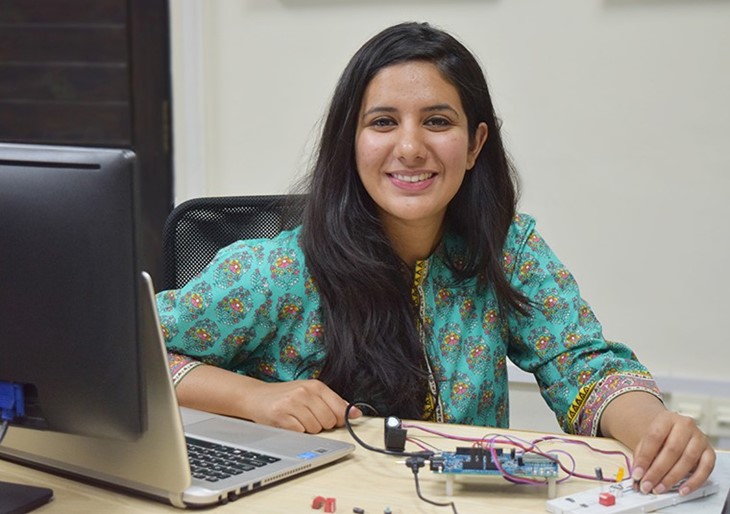Building technology for women, by women

Malala has two great passions: technology and helping women. When she came to the University of North Dakota through the Global Undergraduate Exchange Program in Pakistan, which IREX implements, she realized that she could combine those two passions into a career. A few short months later, the company GirlTech was born.
"So much of the technology for women takes existing technology and makes it 'pink,'" says Malala. "But as women, we face very different issues than men, so we need technology that's built from our unique perspectives."
Developing a product for women in the U.S. and Pakistan
GirlTech makes apps, electronic devices, and protection products for women. While in Grand Forks, North Dakota, Malala worked with mentors at UND, including Dr. Tim O'Keefe, executive director of the School of Entrepreneurship, and Bruce Gjovig, founding director of the Center for Innovation. Through this mentorship, she envisioned her company's first product, StaySafe.
StaySafe is an app and wearable device designed to prevent sexual assault. The product takes multiple actions on behalf of the wearer, such as broadcasting the wearer's location to family and police via a distress signal, texting or calling a relative or the authorities, or making a loud noise to deter the assailant when there is little internet or phone connectivity.
Malala pitched the idea to Howard Dahl, president and CEO of Amity Technology in Fargo, who wanted to invest in GirlTech. Even though Malala had a strong network and backing in North Dakota, she knew that she had to bring her company and products back to Pakistan.
"I made a commitment to come back to Pakistan," Malala says. "GirlTech and our products are very applicable to Pakistan as well as to the United States."
Bringing Girl Tech to women in Pakistan
Since returning to Pakistan, Malala has continued to work on building GirlTech and its network of products. "I came back with hope and energy and a clear idea of what I wanted to do," Malala explains.
Malala and three female software engineers are adapting StaySafe for Pakistani girls and women. Through the Pakistan-U.S. Alumni Network (PUAN), Malala also connected with WECREATE Center Pakistan, a women's entrepreneurship center in Islamabad that helps women get their companies off the ground. Through the center, she's received guidance on how to register her company in Pakistan and create a business plan to attract investors once she has a prototype.
Though GirlTech is still a new company, Malala is becoming an international tech sensation because of her company's products. The ITU Telecom World Young Innovators Competition named her as one of the top five young innovators and gave her an in-kind investment to create her prototype. Malala also connected with a team of international developers at the Port Hackathon at CERN in Geneva. The team reached out to her for insight about how to bridge the gender digital divide in humanitarian crises and develop their own prototype.
Now Malala is creating apps and devices such as maternal health monitors to address other issues that women in Pakistan face.
"I know there's a future for GirlTech," Malala says. "I want to use this opportunity for incubation... to develop and work on GirlTech."
The Global Undergraduate Exchange Program in Pakistan is sponsored by the U.S. Department of State with funding provided by the U.S. Government and administered by IREX.